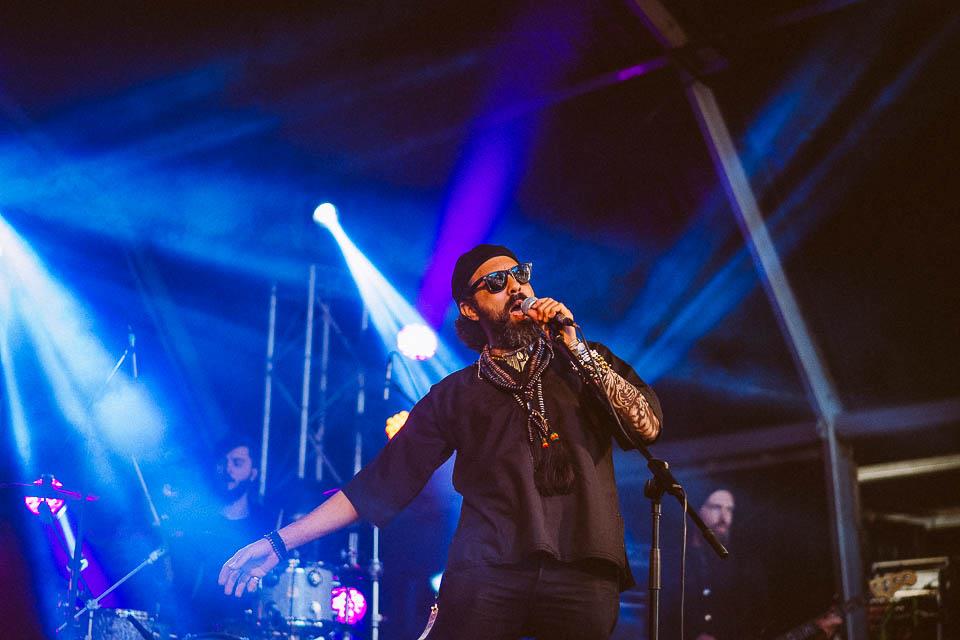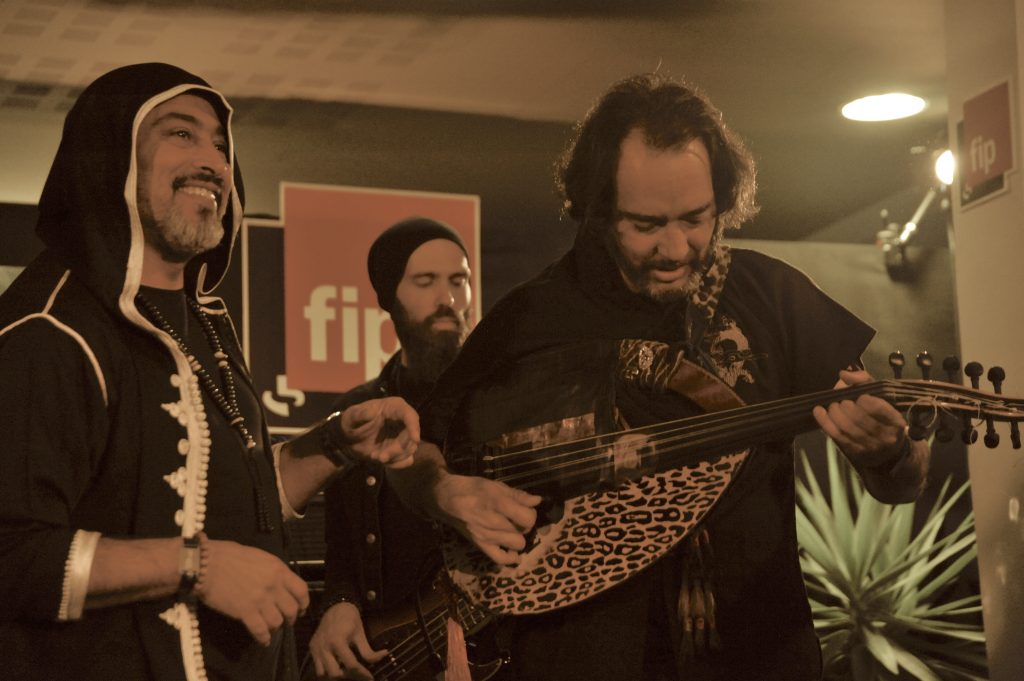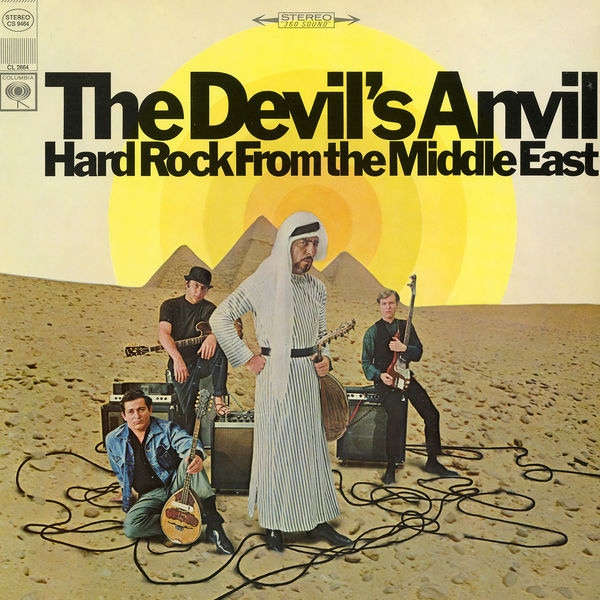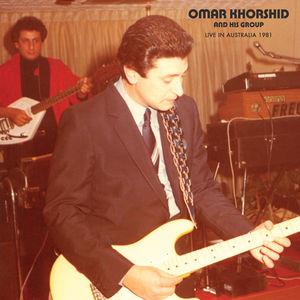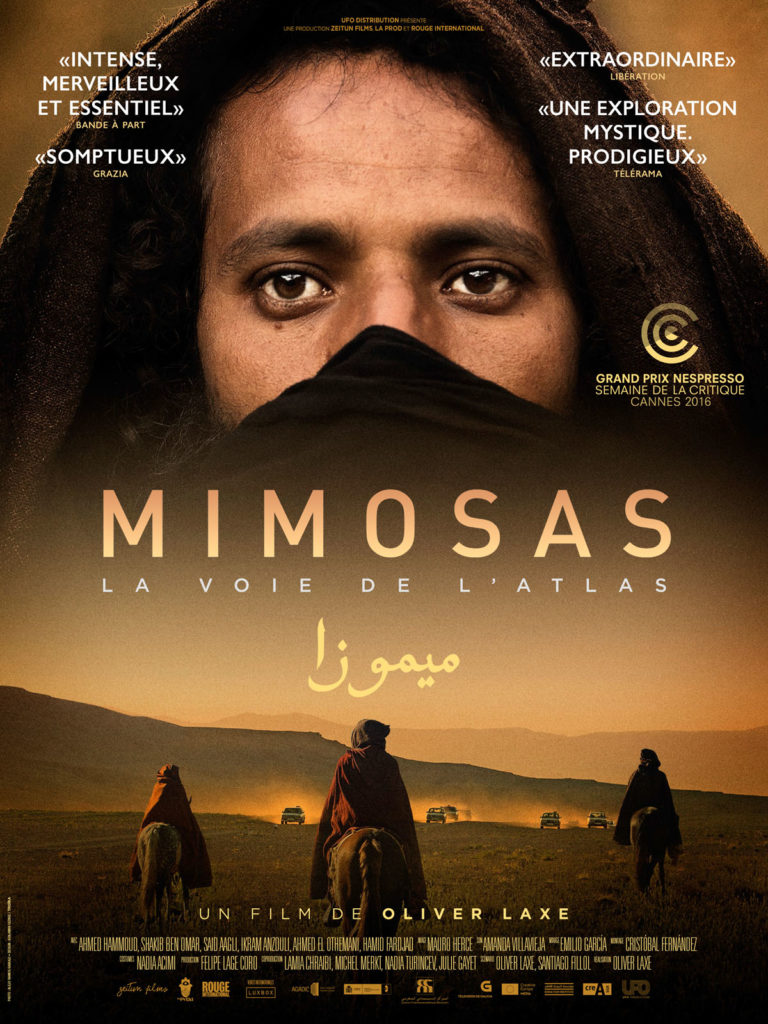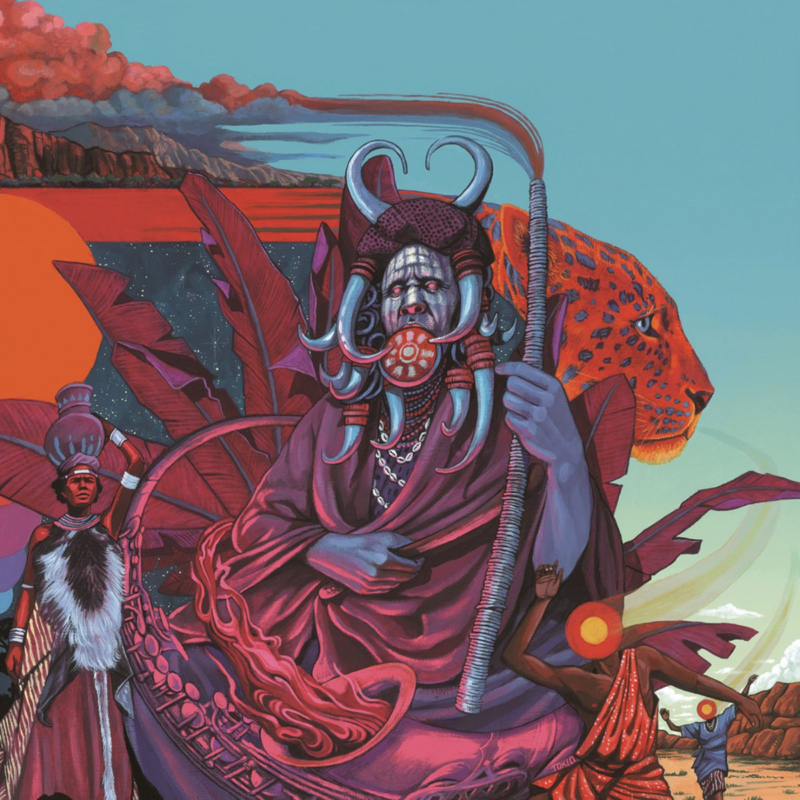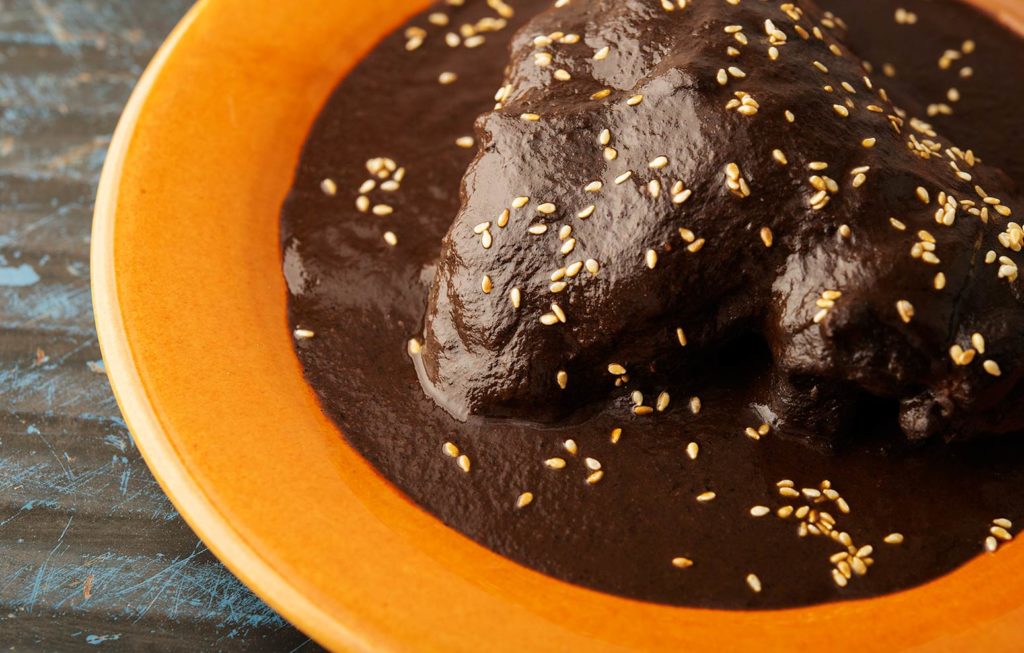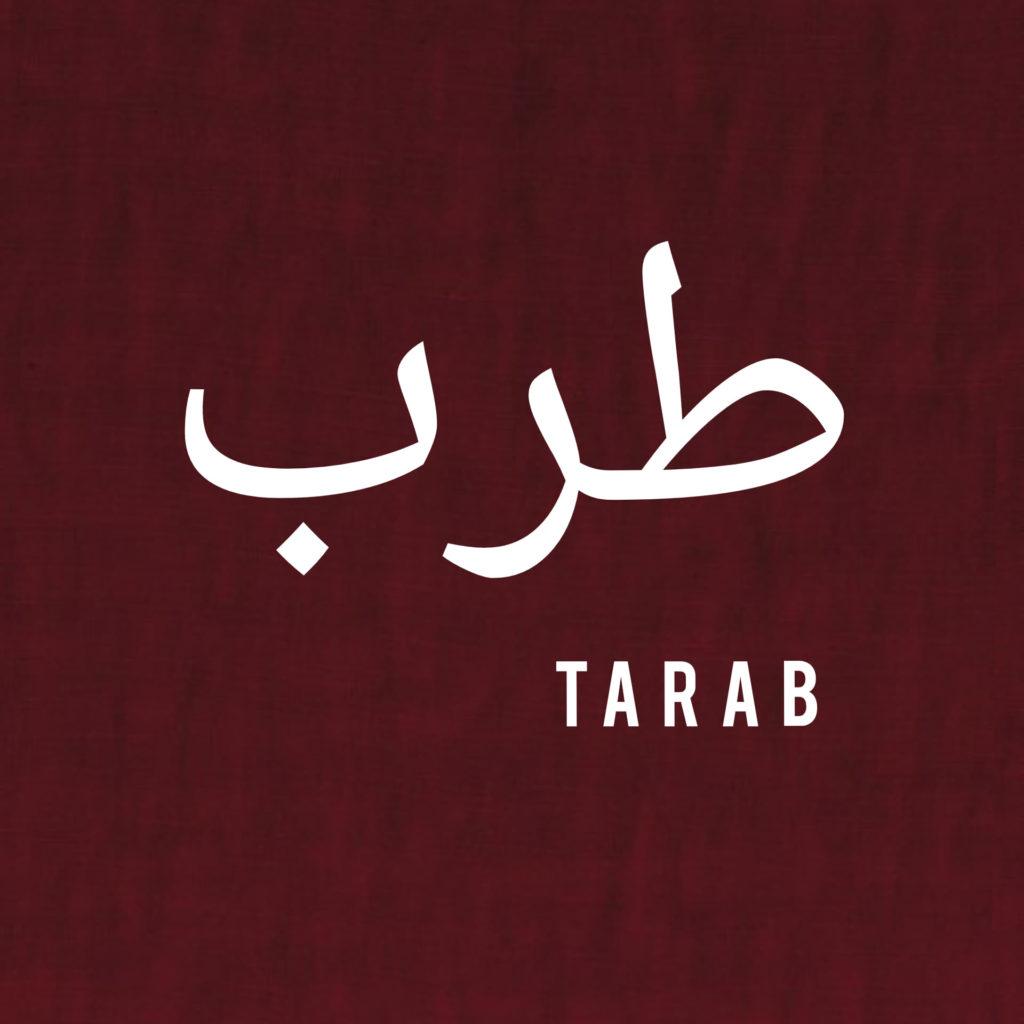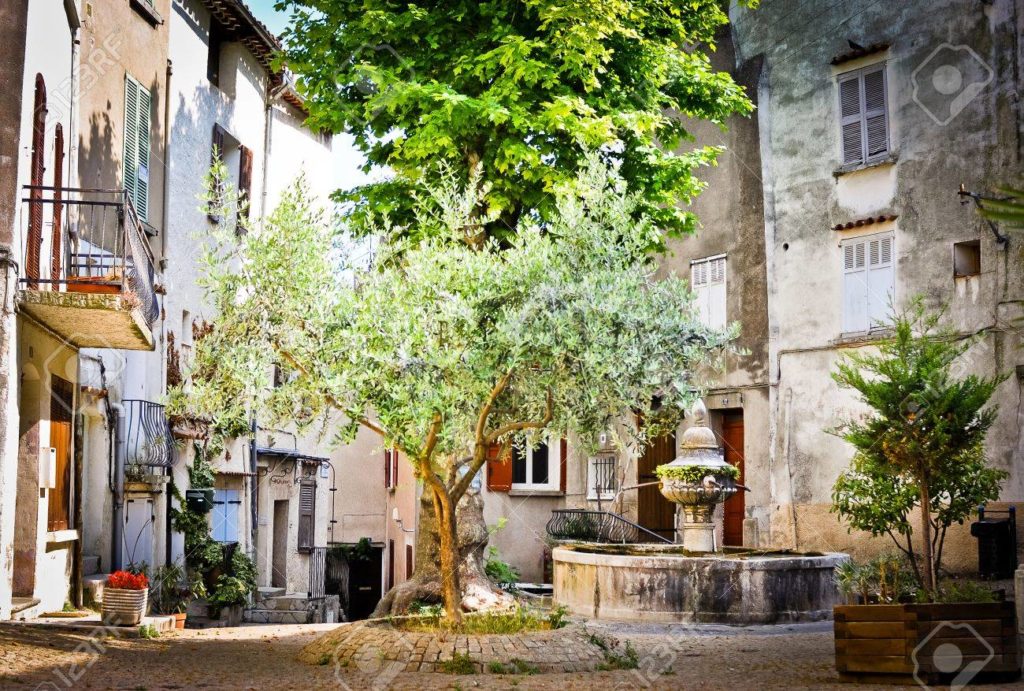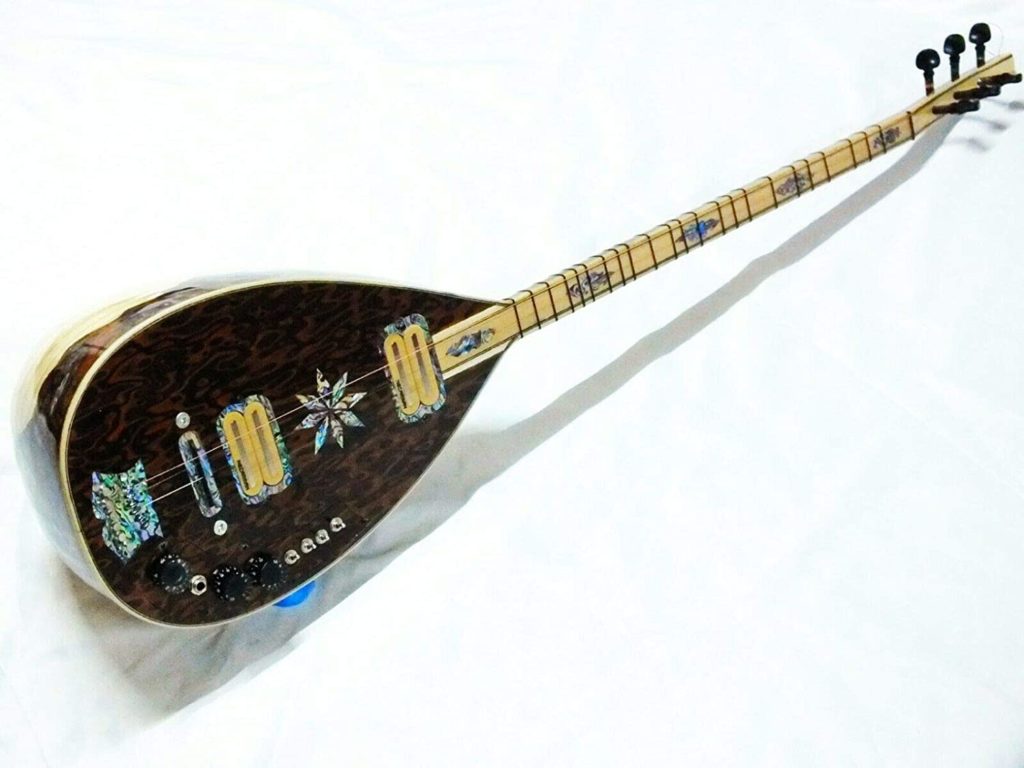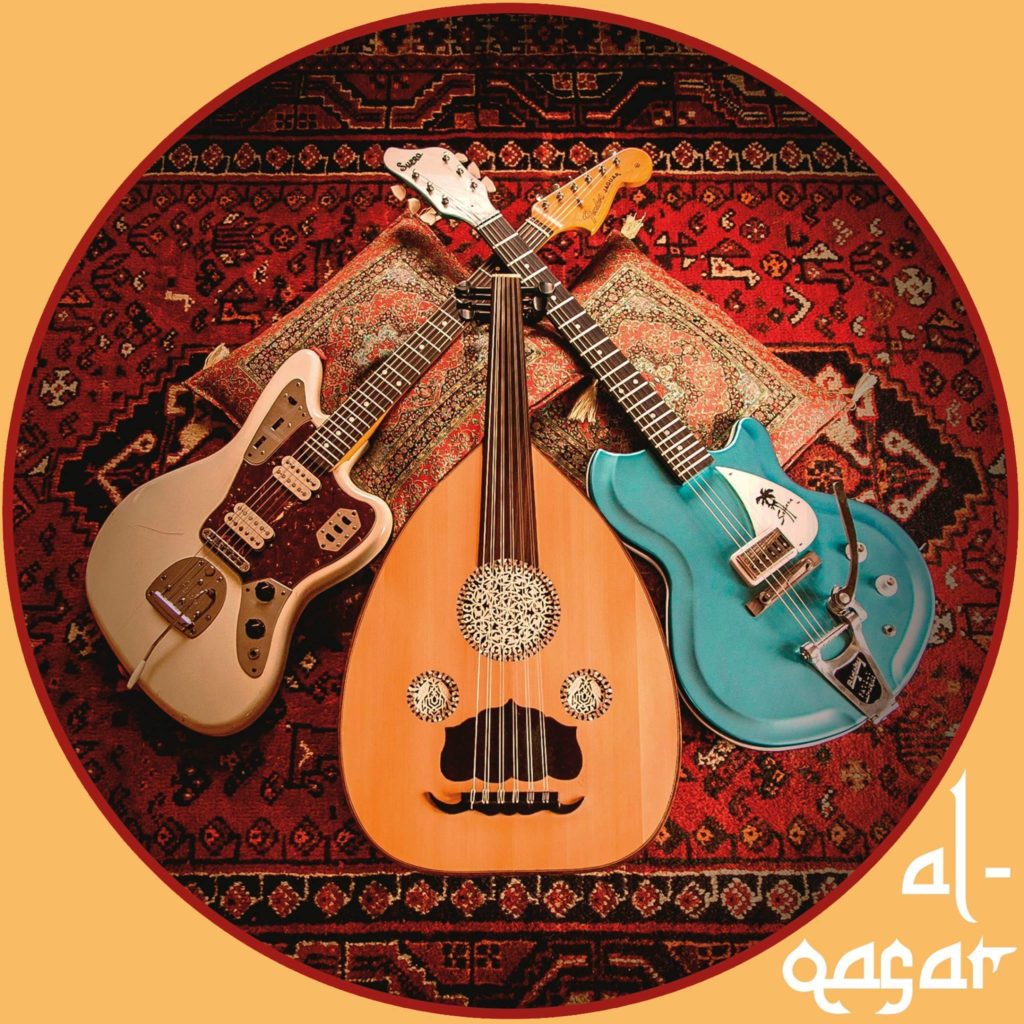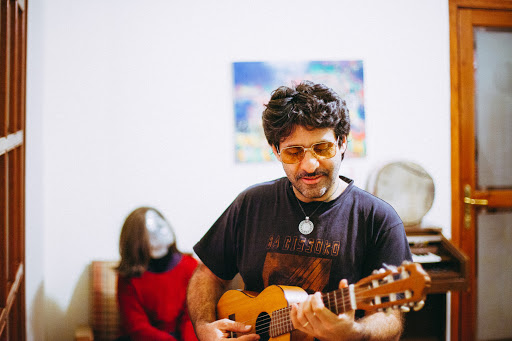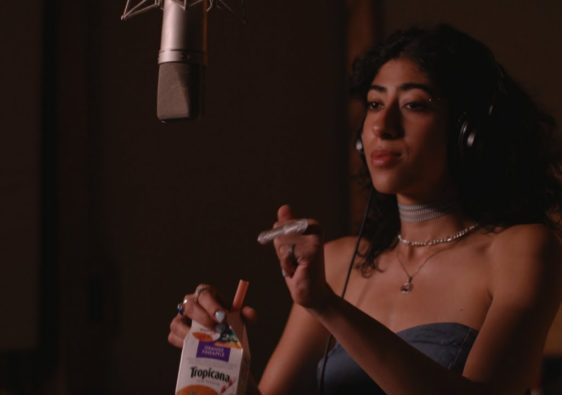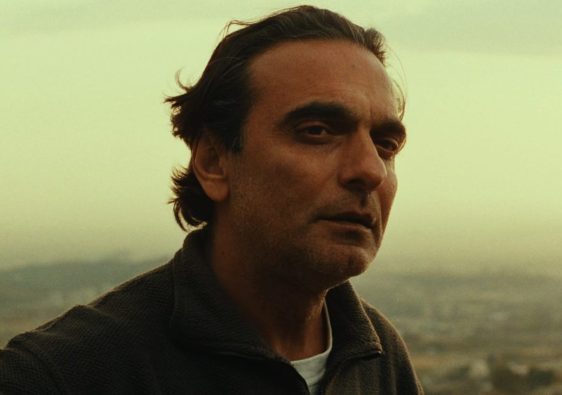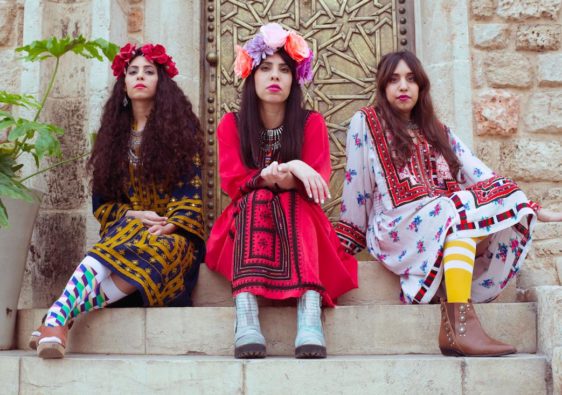In June 2020, the music band Al Qasar releases its first EP Miraj. Recorded between Paris and Los Angeles, mixed in Nashville and carried by a collaboration with Egyptian musicians in Cairo, this first opus fuses genres, from psychedelia to garage rock and from oud to electric guitar.
At the origin of this musical trance, the Franco-American producer Thomas Attar Bellier, founder of the band.
CREATION OF THE BAND
• Hello Thomas ! Can you tell us about your personal musical journey ?
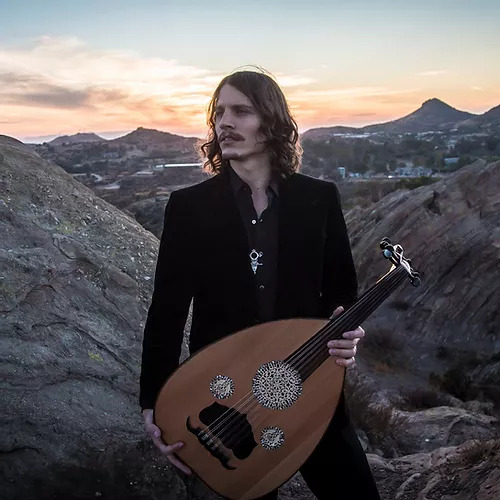
I started touring in Europe and the USA about ten years ago with Blaak Heat, a psychedelic rock band that I founded in 2008 when I was a student. In 2013, I joined Spindrift, a band from Los Angeles founded by members of the Brian Jonestown Massacre in the 90s, with a « spaghetti western rock » sound in the vein of Ennio Morricone and country western « outlaw ».
We’ve toured all over the United States, from the seediest bars in Idaho to the ghost towns of California.
Around the same time, I started working as an assistant to a big heavy rock producer in LA, Matt Hyde, who taught me everything in the studio. That’s when I started mixing and producing on my own and working on movie soundtracks, while working in parallel with Matt Hyde as a sound engineer and assistant on sessions for artists like Deftones, Danzig, Bill Ward…
• How was Al Qasar born, and why this name (القصر in Arabic, « the palace ») ?
In 2017, I wanted to change the air. I was ready to launch a new project, something more « challenging » in terms of writing and above all with a slightly more interesting social and cultural perspective. I had just collaborated with the Jordanian-American poet Fareed Al Madain on a Blaak Heat track, and we had hit it off. So we set ourselves the goal of making 5 demos with an oriental « pop-psychy » instrumentation and lyrics in classical Arabic. Fareed introduced me to the world of Sheikh Imam and Ahmed Fouad Negm, he had this desire to associate literary Arabic with socially and politically charged themes, such as corruption, oppression of peoples, drugs, poverty.
At that time, I was in a phase in which I listened a lot to Googoosh, Zia Atabay, Selda, Ersen, Elias Rahbani… I was fascinated by these sounds that juxtaposed very western arrangements and voices in Farsi, Turkish, Arabic… or Ludwig drums and Fender amps on one side, and oud, kanun, darbuka on the other… The band’s sound has developed a lot since 2017, but the oriental psychedelic pop has been our starting point.
The name Al Qasar refers to the palaces built by the Muslims on the Iberian Peninsula. Through this architectural metaphor, my goal was to highlight the processes of acculturation, which are creators of artistic depth and cultural renewal. One can think of the mosque of Cordoba, a mosque built in a cathedral built in a Roman temple.
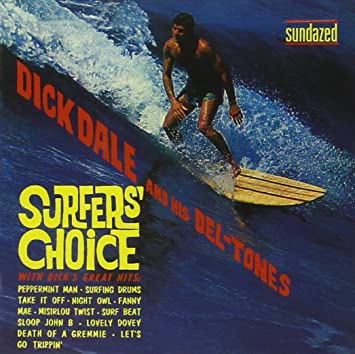
In music, cuisine, literature, architecture, language … everything is acculturation and synthesis, through the movements and interactions of peoples. The surf rock and lowrider culture of the 1950’s, a very central element of the « Californian postcard » aesthetic, finds its roots in the oriental influences of Dick Dale, a guitarist of Lebanese origin.
« Authenticity » and « purity » are illusory concepts, the cultural richness lies in exchanges and borrowings.
• Who is the group made up of ?
Many musicians revolve around the project, with different horizons and backgrounds, which is the strength of our sound. On vocals, I am accompanied by Jawad El Garouj, a Gnawa singer and musician from Essaouira. On the oud, we work with the « Egyptian mozart », Mohamed Abozekry, and the boss of the electric oud, Mehdi Haddab. On bass and drums, I am surrounded by Guillaume Theoden and Paul Void, who have a hard rock past. On percussions, the level is quite hallucinating with Amar Chaoui (also from Tinariwen) and Nicolas Derolin.
• Can you tell us more about the notion of « Arabian Fuzz » ?
I am a huge fan of fuzz guitar pedals. With a few adjustments and a little magic powder, we manage to make the guitar sound halfway between an oriental violin and a mizmar, or a zurna… As such, it is a way of linking within the same music concept arabic music and psychedelic garage rock… I called my label “The Arabian Fuzz”.
THE MUSIC OF AL QASAR
• How did the Arabic language impose itself in your compositions ?
The very basis of the project was to sing in classical Arabic on psychedelic pop rock instrumentation.
• The crossbreeding and the committed lyrics are at the heart of your music. Could you tell us what your lyrics are about, and what are the ambitions of the band?
The values that we defend emanate from our daily life, within the group : we are a multicultural, multiracial, multinational group… We naturally tend towards themes such as corruption, oppression, women’s rights, the place of refugees, poverty, addictions. We try to bring them up to open the debate, to encourage reflection. But we remain quite subtle in the expression of these themes, which we evoke through short stories, metaphors, and humor.
In a way, we also wish to act as a spokesperson for our friends and colleagues who do not necessarily have the means or the right to express themselves. The experiences of our friends in Egypt, Morocco and Syria feed our creativity.
• What are the instruments that make the sound identity of Al Qasar ?
The encounter between the acoustic oud and the electric guitar is quite fundamental to our sound. Just like the « heavy » drums on one side, and the oriental percussions on the other (daf, darbuka, riq, bendir…).
• The singer of Al Qasar, Jawad El Garouj, comes from the gnawa tradition, and you have collaborated in Egypt with musicians who practice zar, an ancestral dance ritual. What place does trance and mysticism occupy in your conception of music ?
Psychedelic rock has the ambition to hypnotize the listener to take him or her elsewhere, towards more wisdom, knowledge and tolerance. Let’s not forget that this style was born at the time when the West discovered ancestral hallucinogenic drugs, such as psylocibine or peyote. In this perspective of opening the « doors of perception », it approaches the gnawa and zar, which seeks to provoke trance in the listener so that the latter can enter into communication with his spirits.
As for Al Qasar, we share this objective, with, of course, a less religious ambition. But rhythms and grooves are central to our writing and arranging process. It has to groove a lot and be hypnotic, it has to make you want to close your eyes and move, like in zar and gnawa where rhythms are used as a means to provoke trance.
INFLUENCES AND CREATION
• The influence of the 70’s and psychedelic rock is very present in your music. Who are the artists of this era that inspire you, both musically and visually ?
I mentioned some of them above, but in terms of the encounter between East and West, the period was very fruitful. We can talk about the album Hard Rock From The Middle East by The Devil’s Anvil, which was founded by a member of Mountain and features Arab musicians living in New York. The cover speaks for itself : an oud, an electric bouzouki, amps, a Bedouin outfit…
The guitarist Omar Khorshid also in Egypt, who « orientalizes » the electric guitar to the highest levels of oriental music – Khorshid will play with Abdel Halim, among others. It’s not called psychedelic rock, but we are clearly in the « tarab« , the secular trance provoked by popular music.
• Cairo and Egypt seem to have been very important in your creative process. Can you tell us a little more about it?
Al Qasar has been invited to perform at a festival in Cairo in 2018, in the historic center of the city, next to the Al-Azhar Mosque. There were more than 6,000 people, mostly young people, who knew by heart our choruses … It was mind-boggling, knowing that at that time we had barely released two singles. We knew that culturally we were touching something, that we were finding our audience – an audience that wanted to listen and party to rock, with lyrics that weren’t afraid to say things.
We had some wonderful encounters that weekend, which led to a second invitation a year later to record and collaborate with musicians from the zar. This second time, I spent several weeks in Cairo, to take the time to blend in with the city’s routine and the musicians’ daily life, and to develop new friendships. It was an opportunity to feel a bit of the post-revolutionary state of mind, to discuss it with people who were active between 2011 and 2013. I also had the huge honor of collaborating with Dina El Wedidi, with whom I released the single Hila Hila last July.
• One of the tracks on the EP, Dance of Maria, is a cover of the very famous Lebanese composer Elias Rahbani. What does this cover symbolize for you ?
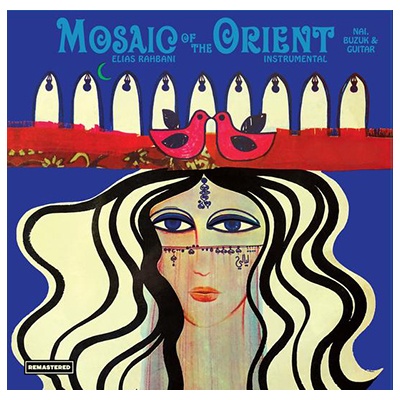
The idea was, on this first EP, to pay tribute to one of the tracks that directly inspired the birth of Al Qasar. Before the release of the EP, I sent our version of Dance Of Maria to Abdallah Chahine Jr., the last of the Chahine lineage, who manages the legendary catalog of La Voix de l’Orient, in Beirut. He told me that he had played it to the big boss -Elias Rahbani- who approved it. That feels good.
LAST BUT NOT LEAST…
• How would you like to make people who listen to your music feel ?
I would like to help them to find an inner strength, which can eventually find a concrete political or cultural expression.
• About Miraj, what is your favorite song and why ?
It’s like asking a parent which is his favorite child… impossible! They are all unique in themselves, each one has had a different history and maturation process.
• Which artist created the cover and visuals for the EP ? What were your desires ? The bright colors, the rock spirit and the veiled woman on the motorcycle remind us a lot of the work of the Moroccan photographer Hassan Hajjaj, to whom we devoted an article.
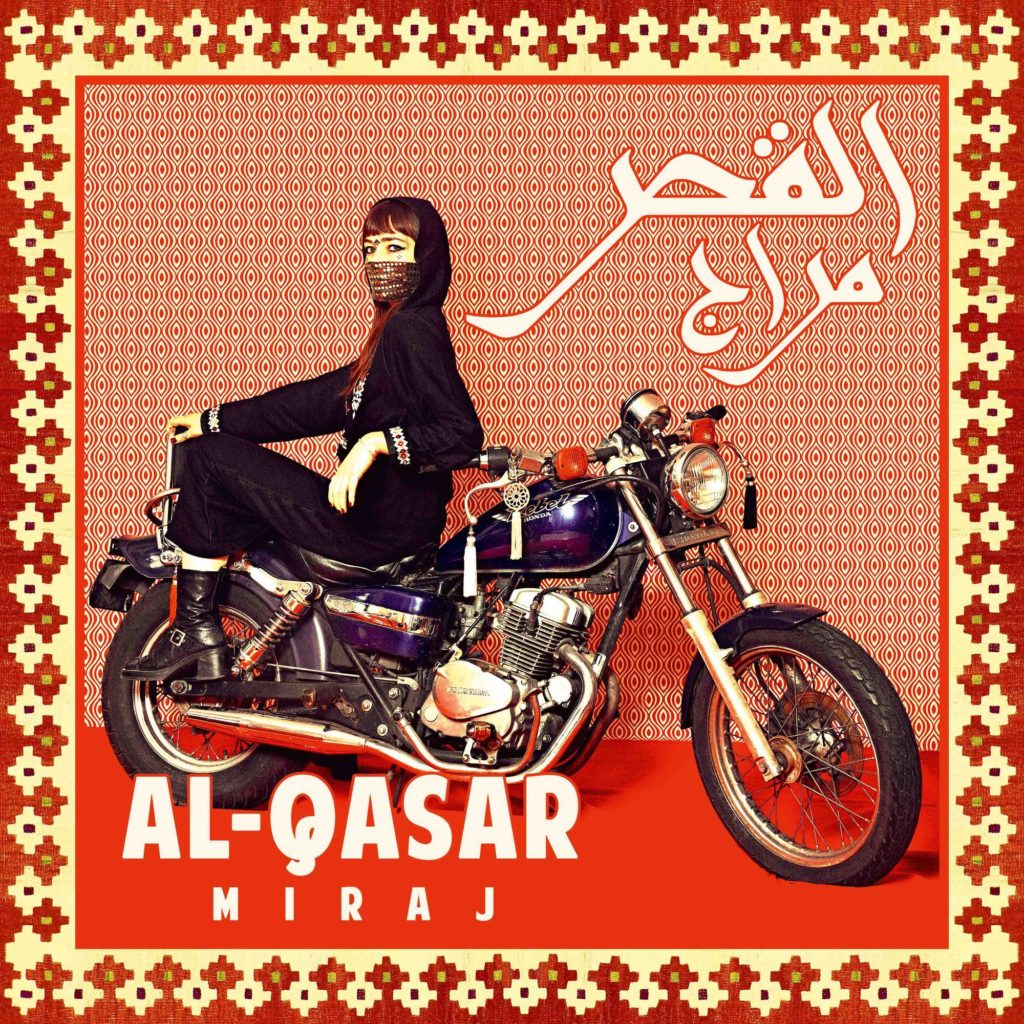
The cover was made by Abdelwaheb Didi, the French-Algerian fashion photographer, who, like me, has a big psychedelic rock background. We thought together about this cover, which we wanted to be inspired by two Malian photographers who were active in the 1950s and 1960s (and who obviously had a great influence on Hassan Hajjaj), Malick Sidibé and Seydou Keïta.
Of course, we were aware of the work of Hassan, who had already photographed Jawad El Garouj a few years before.
• What are the current groups or artists that inspire you and that you would like us to discover ?
As for current groups, I recommend DAM, the Palestinian hip hop group, or 47 Soul, a Palestinian-Jordanian group. In psyche, you should of course check out Gaye Su Akyol and BabaZula, from Istanbul, or Dudu Tassa in Israel.
I listen a lot to O Gajo at the moment, a Portuguese player of « viola campaniça » (a traditional guitar from the Alentejo region) with whom I collaborate, or Dead Combo, a duo from Lisbon (but who has just closed down).
And I will never stop preaching the gospel of Dina El Wedidi, a Cairo singer and musician who has been a big hit since the revolution, with a very personal style.
• IN THE SPIRIT OF THOMAS ATTAR BELLIER •
Inspiring works, ideas and words
A movie ? Oliver Laxe, Mimosas : The Atlas Way
A book ? Alaa El Aswany, The Yacoubian Building
A painting – an artist ? The afro-futurist covers of Tokio Aoyama
A song ? Nai Bonnet, The Seventh Veil
A picture ? Demonstrators in May/June 2020 in the United States, one knee on the ground in front of the riot police
A dish? Mole negro, a pre-Colombian dish from the Oaxaca region
A word ? Tarab طرب
A place ? The village square, under the tree, next to the fountain (in all countries of the world)
An instrument ? The electric saz
• PLAYLIST •
Click on the image to access it !
Follow Al Qasar : Facebook – Instagram – YouTube
• CONTEST •
Visit our Instagram page to try to win an Al Qasar vinyl !
[Contest ends on Sunday, November 1st, 2020]

